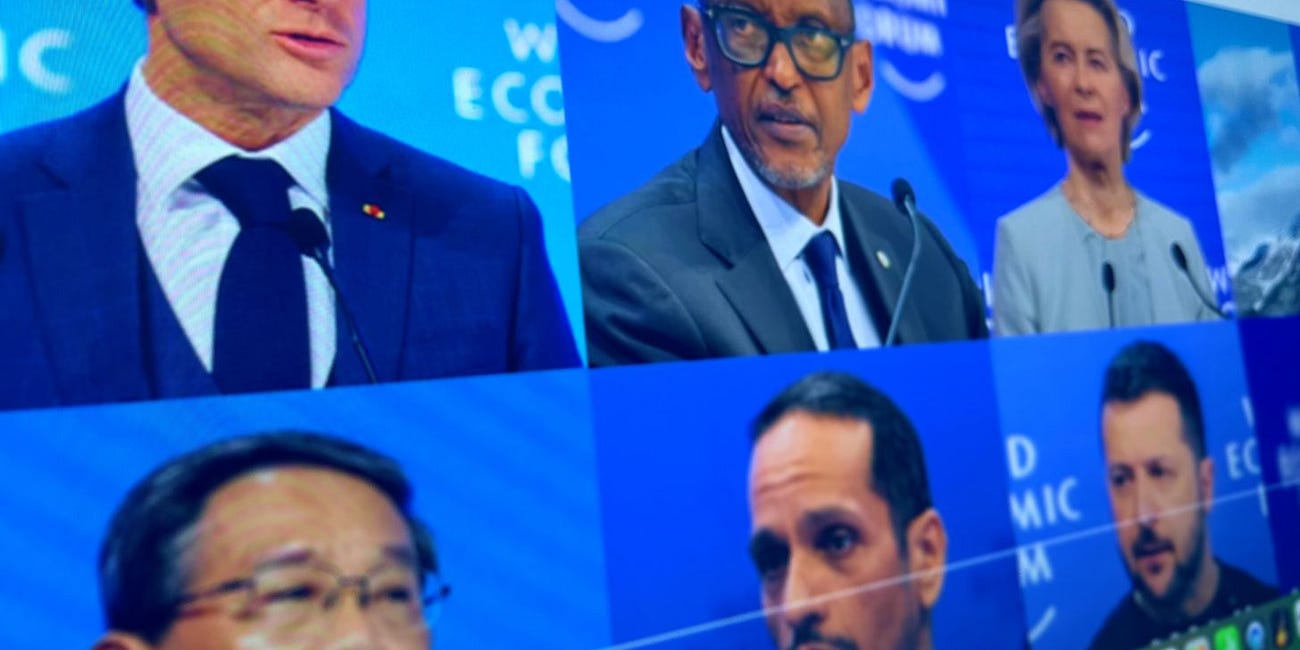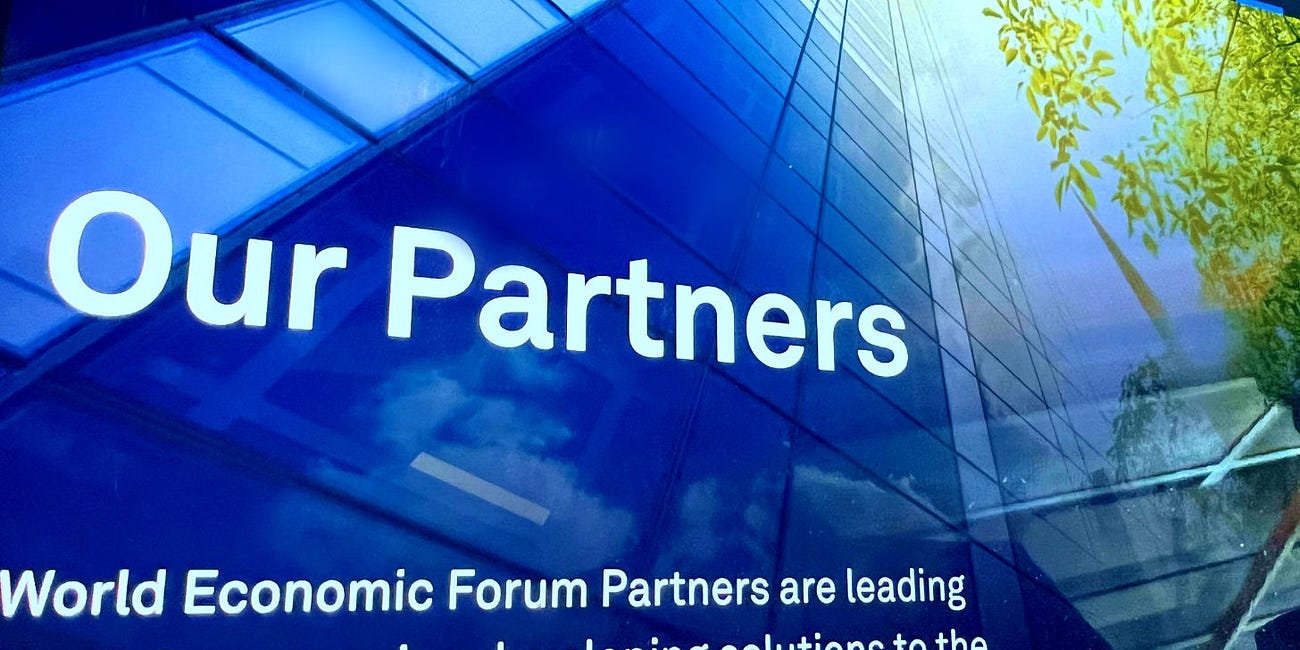World Economic Forum Engineered Strict Pandemic Lockdown Measures, Silenced Dissent, Shaped Global Opinion: Journal ‘Cureus’
Study calls out "unwarranted interference of the WEF and its global network in the affairs of civil society and public health in what appears to be a controlled demolition of democratic rights."
A 2022 study published in the journal Cureus titled “Is the Network of World Economic Forum Young Global Leaders Associated With COVID-19 Non-Pharmaceutical Intervention Severity?” has revealed a significant correlation between the presence of World Economic Forum (WEF) Young Global Leaders (YGLs) in a country and the severity of its pandemic lockdown measures during the COVID-19 pandemic.
Follow Jon Fleetwood: Instagram @realjonfleetwood / Twitter @JonMFleetwood / Facebook @realjonfleetwood
The findings are significant, given current mainstream narratives are warning of potential pandemics on the horizon involving bird flu, monkeypox, and Black Death plague.
The Forum’s programs are spearheading the worldwide climate change narrative, as well as the idea that China will be the next world superpower, Diversity, Equity, and Inclusion (DEI) efforts, and population management.
The globalist group, founded in 1971, accomplishes this by partnering with top politicians from around the world, international corporations, legal systems, political activist groups, and the so-called scientific community.
The WEF’s programs are carrying out a global program it calls the “Great Reset,” after which citizens worldwide will “own nothing” and “be happy” about it.
“The World Economic Forum (WEF) has spawned a global network of elites called Young Global Leaders (YGLs) with significant influence on large corporations, politics, academia, and media,” the study reads.
The authors scrutinized “the idea that through this network, the WEF had a significant influence on the scale and scope of the non-pharmaceutical interventions (NPIs) implemented in response to the COVID-19 crisis.”
NPIs refer to closures of borders, mask mandates, stay-at-home orders, business closures, and strict curfews.
“[M]any of these have been found to be ineffective or irrelevant quite early on,” the authors comment.
In fact, these measures ended up causing new problems, like business closures and even increased deaths.
The authors affirm:
A case can be made that a lot of the secondary problems stem from these political responses, usually called non-pharmaceutical interventions (NPIs). Business closures have affected small businesses that often went out of business, if countries had no relief program in place. Lockdowns and stay-at-home orders have affected poor people more than affluent ones, as in some countries going out for work or buying food is important for sustenance and livelihoods. Although the general idea behind government-mandated NPIs was to “flatten the curve,” and hence to avoid COVID-19 deaths, the collateral damage associated with them might tragically have caused hundreds of thousands secondary deaths. In addition, NPIs were not associated with a reduction of COVID-19 related deaths in several modelling studies, although Hale et al. found a significant global association between the stringency of NPIs and deaths measured after 28 days.
The researchers tested for associations between countries’ distribution of YGLs and the intensity and duration of lockdown measures summarized by the Government Response Severity Index (GRSI).
They characterize the WEF as one of the “transnational policy networks” that exert “disproportionate influence over policy design and implementation on issues of global importance.”
The authors exemplify this, noting a 2017 interview with the organization’s founder, Klaus Schwab, who bragged about his organization’s successful “penetration” into governments worldwide, saying: “What we are very proud of, is that we penetrate the global cabinets of countries with our World Economic Forum Young Global Leaders.”
Using the WEF’s website, researchers extracted the number and category of YGLs per country, logging the maximum and median GRSI values for three time periods: the beginning of the first wave of the pandemic (March 1, 2020, to April 30, 2020), the height of the second wave in Europe (December 1, 2020, to January 31, 2021), and the approximate first year (March 1, 2020, to January 31, 2021).
The Our World in Data (OWID) database yielded GRSI data for 182 countries.
Of these 182 countries, 109 hosted at least one YGL, meaning roughly 60% of all countries in the world are home to at least oneYGL.
On average, there were almost seven YGLs per country.
The United States, China, Germany, India, Japan, Singapore, Switzerland, and the United Kingdom had more than 30 YGLs.
Follow Jon Fleetwood: Instagram @realjonfleetwood / Twitter @JonMFleetwood / Facebook @realjonfleetwood
A strong link was found between the number of YGLs in a country and stricter lockdown measures during the second wave of the pandemic.
More YGLs also predicted higher lockdown severity during this period.
“There was a highly significant positive correlation between the total number of YGLs in a country and the median (ρ = 0.36, p = 2.5×10-7) and maximum (ρ = 0.34, p = 1.6×10-6) GRSI during the second wave of the pandemic, but not during the first wave,” the study reads. “The total number of YGLs was also a significant predictor of higher median GRSI during the second wave of the pandemic.”
The findings suggest that the WEF acted as an “amplifier” of strict lockdown measures during the second wave of the pandemic.
The WEF was “an echo-chamber or amplifier for certain opinions and strategies that were formed and implemented during or before the first months of the COVID-19 crisis,” the study authors confirm.
They warn the findings represent “preconditions for causation.”
The data indicate the YGL network served as a “selector” for political opinions, amplifying and spreading these views throughout the WEF’s global network after the first wave of the pandemic.
“If the WEF has formed a coherent opinion on the crisis as well as on the corresponding mitigation measures, then this opinion may have been shared and amplified by the YGL network,” the authors argue.
“In fact, our data suggest that this has been the case after the first wave. Thus, the network might have operated as a selector and an echo chamber for shared, politically desirable opinions which were then amplified and propagated through the network.”
Although there was no association between the number of YGLs per country and the strength of the NPIs during the first wave of the pandemic, this was probably because the first wave was “driven by other factors, such as recommendations by the WHO and mimicry between countries.”
However, the WEF would become a “selective and reinforcing factor” that spread “health propaganda” worldwide.
The study reads:
[A]s NPIs became established as potential pandemic mitigation measures, the WEF seems to have become a selective and reinforcing factor. In fact, the WEF has featured and advocated specific NPIs − including early prototypes of the later digital COVID certificates then dubbed “COVID-19 health passports”, mass scale health propaganda via ringtones, and electronic bracelets for infected or quarantined persons − as viable mitigation measures, and in this sense the YGLs seem to have been supportive as well.
The study authors contend the YGL community likely coordinates and mainstreams political opinions, contributing to the establishment of a dominant narrative, even when contradicted by evidence.
After the first wave, some studies wrongly supported lockdowns, while critical voices were ignored, possibly due to the influence of the YGL network.
This highlights the potential role of the WEF in shaping public opinion and policy, warranting further investigation into its long-term influence over governments, corporations, and media.
The “unwarranted interference of the WEF and its global network in the affairs of civil society and public health… appears to be a controlled demolition of democratic rights,” per the study.
The authors write:
It is likely that the YGL community is in mutual exchange and hence coordinates and mainstreams opinions and political outlooks. It is interesting to observe that after the first wave, some studies were published that were factually wrong, suggesting that lockdowns were useful, for instance Dehning et al. in the case of Germany who were later shown to be wrong. Critical voices warning of the sensitivity of initial parameters in supportive models went often unheard. This seems to have happened because a mainstream opinion had already been established across many countries that also defined what was considered politically correct and good for everyone’s health. This is the typical domain of shaping public opinion despite a lack of, or even in the face of, contradicting evidence. And this might be indeed associated with YGL influence in a country as one influential factor among many others. A study like ours is only able to scratch at the surface on the question of unwarranted interference of the WEF and its global network in the affairs of civil society and public health in what appears to be a controlled demolition of democratic rights. Since the WEF exists since 1971, subsequent studies might attempt to longitudinally analyze how the WEF has managed through the decades to gain such control over governments, corporations, and the media.
The researchers had set out to answer the question “Is the number and the gravitas of YGLs in a country associated with the country’s NPI in the first phases of the pandemic in 2020?”
They conclude that the association between the number of YGLs in a country and a country’s strength of NPIs during the second phase of the pandemic “speaks in favor of the hypothesis that the WEF operates as an amplifier network or an echo-chamber for certain opinions that might either be presented to the network or that might arise within it and be then transported through it.”
Follow Jon Fleetwood: Instagram @realjonfleetwood / Twitter @JonMFleetwood / Facebook @realjonfleetwood
Bill Blocking WHO, UN, and WEF from Imposing 'Rule, Regulation, Fee, Tax, Policy, or Mandate of Any Kind' Passes Louisiana Senate
In a landmark move on Tuesday for State sovereignty and local governance, the Louisiana Senate passed Senate Bill No. 133, a piece of legislation aimed at significantly limiting the influence and jurisdiction of certain international organizations within the state.
The WEF 'Axis of Evil': How The World Economic Forum Controls Everything You Do
The World Economic Forum (WEF) is behind the global climate change narrative, promoting China as the next world superpower, and worldwide Diversity, Equity, and Inclusion (DEI) efforts.
List of Every Company Officially Partnered With the World Economic Forum (WEF)
The 54th Annual Meeting of The World Economic Forum (WEF) is currently underway at Davos-Klosters in the Swiss canton of Graubünden.









Jon, your work is brilliant and indispensable at a critical time for western civilization.
Thank you for your great courage, clarity, charity, commitment, and sacrifice.
Great post. Thanks.